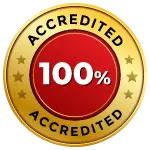
23/12/2023
It’s no surprise that Canada’s Entry Express program is becoming increasingly popular, attracting more individuals eager to explore the opportunities it presents. Who wouldn’t be intrigued by the prospect of residing in a country that provides such extensive benefits to its residents?
1. What does the Entry Express Program entail?
EEP serves as an electronic application management system designed to facilitate the processing of submissions from qualified individuals seeking Canadian permanent residency. This platform streamlines the application procedures for various immigration programs, including:
- Skilled Trades Immigration Program (STIP)
- Skilled Worker Immigration Program (SWIP)
- Canadian Experience Pathway (CEP)
The Express Entry Program assesses applications by utilizing the Comprehensive Ranking System (CRS) points, streamlining the process for candidates with the highest rankings to apply more seamlessly and secure Canadian permanent residency.
2. What does the Comprehensive Ranking System (CRS) entail?
If you’re seeking entry into Canada through the Express Entry Program, your application will be evaluated using the Comprehensive Ranking System, where a maximum score of 1,200 points is assigned to assess the eligibility of applicants for migration. Draws are conducted every second Wednesday, and if you are chosen, you will receive an Invitation to Apply (ITA) in your IRCC account within 24 hours.
3. The distribution of the 1,200-point maximum score is as follows:
- A sole applicant, without a spouse, can accrue a maximum of 500 points for fundamental human capital factors such as age, educational attainment, language proficiency, and Canadian work experience.
- The main applicant, if married, can receive a maximum of 460 points for core human capital factors, while the spouse is eligible for a maximum of 40 points.
- A maximum of 100 points can be obtained for skill transferability factors, such as proficiency in a language.
- A maximum of 600 points can be earned through additional criteria, including provincial nomination, Canadian study experience, a valid job offer, the presence of a sibling or family member in Canada, and proficiency in both English and French languages.
4. How can I determine my eligibility for the Express Entry Program?
To determine your eligibility for the Express Entry Program, begin by assessing whether you qualify for one of the three immigration streams: Federal Skilled Trades (FST), Federal Skilled Worker (FSW), or Canadian Experience Class (CEC). If you satisfy all the criteria, proceed to establish and submit your Express Entry profile. During this process, you’ll need to furnish essential documents, including a passport, language test certificate, and educational records such as an Educational Credentials Assessment or a Canadian diploma. Keep in mind that the more comprehensive your profile, the higher the number of CRS points you’ll accrue!
5. What are FSW, FST, and CEC?
The Federal Skilled Worker (FSW), Federal Skilled Trades (FST), and Canadian Experience Class (CEC) represent three of Canada’s Express Entry immigration pathways, providing individuals with the opportunity to attain Canadian permanent residency.
FSW stands as an excellent program catering to professionals and skilled workers worldwide, whereas FST presents an ideal option for seasoned tradespeople aspiring to relocate to Canada.
On the flip side, CEC (Canadian Experience Class) serves as an immigration initiative enabling individuals with a minimum of one year’s work experience in Canada to pursue permanent residency.
6. What is the minimum score required for me to qualify for an ITA?
The eligibility threshold for receiving an Invitation to Apply (ITA) varies annually, and there is no predetermined score. For general draws encompassing all programs, the minimum cutoff was 413 points in May 2017, but by 2019, the Comprehensive Ranking System (CRS) ranged from 460 to 470. Notably, applicants to the Federal Skilled Trades (FST) program may encounter specific draws tailored to FST applicants, with considerably lower CRS scores, such as the May 2017 draw where it was as low as 199.
7. What steps can I take to enhance my CRS score?”
If your score falls below the draw limit, there’s no need to worry because there’s always an opportunity for enhancement.
First and foremost, ensure that you have provided all the necessary information, particularly regarding your education. If you are applying to CEC and FST programs, there’s no requirement to submit an Educational Credential Assessment (ECA) or Canadian credential upon entering the pool. If you inadvertently omitted details or deemed a course completed five years ago insignificant, it’s crucial to rectify it now. Remember, education holds a value of 200 CRS points, with 150 attributed to the level of education and certificates earned, and an additional 50 when combined with Canadian work experience and/or language proficiency. The Express Entry profile awards points for education irrespective of the field of study and its relevance to your current occupation.
Another avenue to enhance your CRS score is through language proficiency, accounting for up to 260 CRS points for a single candidate and up to 270 points for a couple. Attaining a Canadian Language Benchmark (CLB) of Level 9 is essential for applicants. If you haven’t reached this required level, it is advisable to retake the language proficiency test.
Certainly, alternative avenues include acquiring additional work experience, seeking a job offer in Canada, or pursuing another educational program. However, it’s important to note that these alternatives may extend the overall timeline
8. Who is eligible to join me in applying for the Express Entry Program?
Applicants have the option to include their spouse and dependent children in the application. For Canadian immigration, dependent children should be unmarried and under 22 years old, or above 22 years old if they are financially dependent due to a physical or mental condition.
9. What language tests are mandatory for the Entry Express Program?
Since Canada recognizes two official languages, namely English and French, prospective candidates must provide the outcomes of either IELTS General Training (indicating the CLB level, not the Academic version) or CELPIP General for English. Additionally, candidates must submit Test d’évaluation du français (TEF) or Test de Connaissance du français (TCF) results for French proficiency.
10. What is the duration for acquiring Express Entry?
The duration of the process varies for each individual and is contingent on the applicant; however, it can generally be segmented into the following steps.
- Step 1: Complete and submit an Express Entry profile.
When you possess all the necessary documents, submit them together with your profile. Keep in mind that, on average, the process of preparing documents may take several months to finalize - Step 2. Receive ITA.
Submitting all necessary documents and having a high CRS score may result in receiving an Invitation to Apply (ITA) in the upcoming draws. If your score is close to the cutoff, the wait for an ITA could extend from days to weeks or even months. Conversely, if your CRS score is low, there is a possibility of not receiving an ITA, prompting consideration for score improvement. - Step 3. Final documents submission.
Upon receiving an Invitation to Apply (ITA), you are required to submit your final application within a 60-day period to attain permanent resident status. Generally, the entire process may take up to 6 months for approval and the issuance of the necessary documents to activate your permanent resident status in Canada.
Career Opportunities and Post-Study Work Options
Europe provides excellent career prospects for international students. Many countries in Europe offer post-study work options, allowing graduates to stay and gain professional experience in their respective fields. This experience can be a stepping stone towards long-term settlement or can enhance your prospects in the global job market. Additionally, European countries often have strong ties with international industries, creating ample internship and job opportunities for students to kick-start their careers.
Studying in Europe offers a multitude of advantages, from world-class education and cultural diversity to affordable or tuition-free programs. Exposure to new languages, cultures, and perspectives enriches personal growth and broadens career opportunities.
Sixxer Migrate offers comprehensive assistance for individuals seeking study visas in Europe, guiding them through the application process and ensuring a seamless transition. With their expertise and resources, Sixxer Migrate paves the way for aspiring students to embark on their educational journey in Europe with ease and confidence.


















